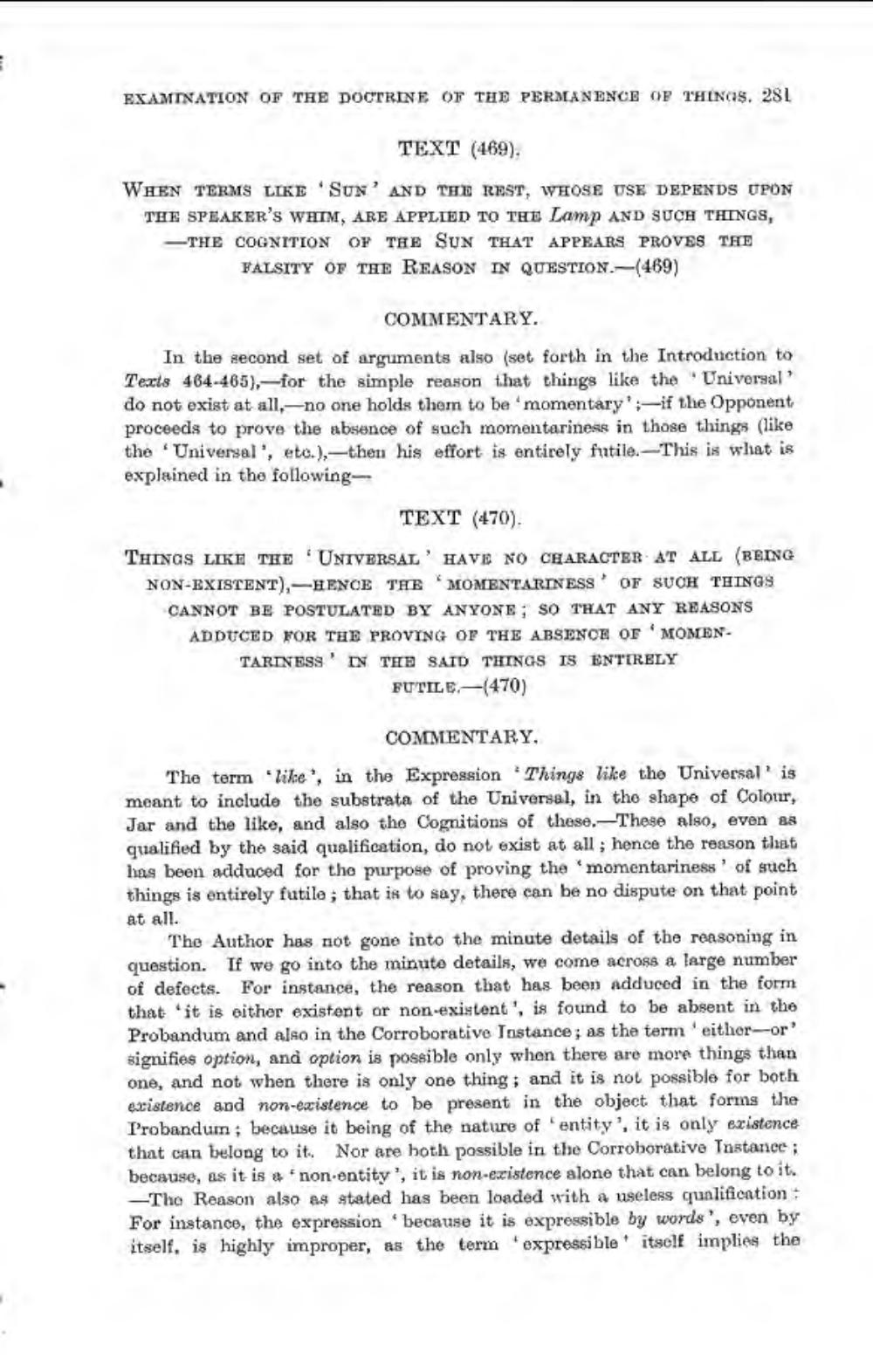________________
EXAMINATION OF THE DOCTRINE OF THE PERMANENCE OF THINGS. 281
TEXT (469).
WHEN TERMS LIKE SUN' AND THE REST, WHOSE USE DEPENDS UPON THE SPEAKER'S WHIM, ARE APPLIED TO THE Lamp AND SUCH THINGS, -THE COGNITION OF THE SUN THAT APPEARS PROVES THE FALSITY OF THE REASON IN QUESTION.-(469)
COMMENTARY.
In the second set of arguments also (set forth in the Introduction to Texts 464-465),-for the simple reason that things like the Universal' do not exist at all, no one holds them to be 'momentary:-if the Opponent proceeds to prove the absence of such momentariness in those things (like the Universal', etc.), then his effort is entirely futile.-This is what is explained in the following
TEXT (470).
THINGS LIKE THE UNIVERSAL HAVE NO CHARACTER AT ALL (BEING NON-EXISTENT), HENCE THE MOMENTARINESS OF SUCH THINGS CANNOT BE POSTULATED BY ANYONE; SO THAT ANY REASONS ADDUCED FOR THE PROVING OF THE ABSENCE OF MOMEN
TARINESS IN THE SAID THINGS IS ENTIRELY
FUTILE (470)
3
*
COMMENTARY.
The term 'like', in the Expression Things like the Universal' is meant to include the substrata of the Universal, in the shape of Colour, Jar and the like, and also the Cognitions of these.-These also, even as qualified by the said qualification, do not exist at all; hence the reason that has been adduced for the purpose of proving the momentariness' of such things is entirely futile; that is to say, there can be no dispute on that point at all.
The Author has not gone into the minute details of the reasoning in question. If we go into the minute details, we come across a large number of defects. For instance, the reason that has been adduced in the form that it is either existent or non-existent, is found to be absent in the Probandum and also in the Corroborative Instance; as the term ' either-or' signifies option, and option is possible only when there are more things than one, and not when there is only one thing; and it is not possible for both existence and non-existence to be present in the object that forms the Probandum; because it being of the nature of 'entity', it is only existence that can belong to it. Nor are both possible in the Corroborative Instance; because, as it is a non-entity', it is non-existence alone that can belong to it. -The Reason also as stated has been loaded with a useless qualification: For instance, the expression because it is expressible by words', even by itself, is highly improper, as the term 'expressible itself implies the
+




